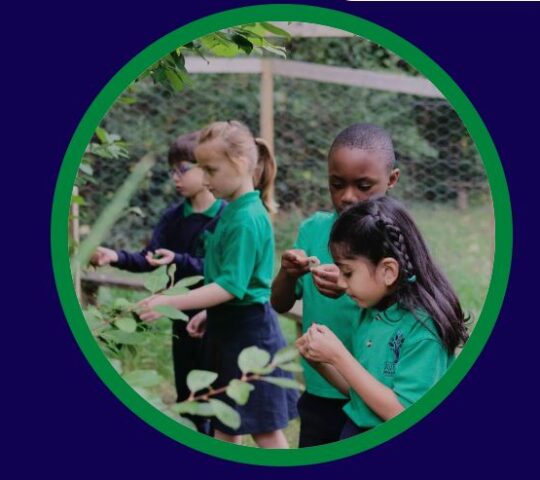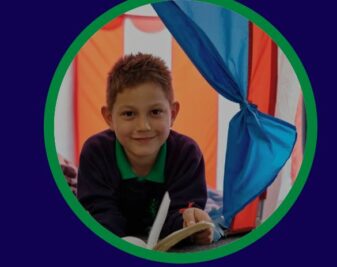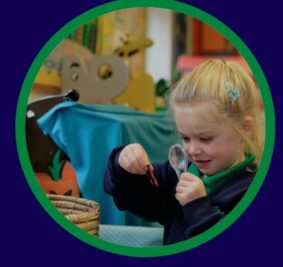Who is IQM?
IQM is the only national inclusion award in the UK. For over 20 years and in over 20 countries, schools, MATs and Local Authorities use the Inclusion Quality Mark to recognise exemplary inclusive practice.
Get in touch for your FREE school information pack today.
Avenue Primary Academy Achieves Centre of Excellence
August 8, 2023
Avenue Primary Academy has achieved the Inclusive School Award with Centre of Excellence.

Happy, Welcoming, Calm Yet Vibrant School
Avenue Primary Academy is a happy, welcoming, calm yet vibrant school. This is a truly inclusive school. The rich tapestry they have woven over time has been painstakingly crafted with multiple layers of evidence-based, robustly introduced and closely monitored threads of inclusive practice. This school is not afraid to reflect or to seek other perspectives to see where things might be improved and to add detail to existing successes. As a result, staff, children, parents and carers feel part of this vibrant community. One parent said, “they are not trying to wrench and fold them to fit their mould. The school wraps around their jagged bits.”

Inclusivity values are lived and breathed. Staff model inclusivity and equitable support at every opportunity. The school articulates inclusivity clearly and this value sits firmly behind policies and practices. Inclusion is the first of the Trust’s values. As a Rights Respecting School, references are made throughout policies to the United Nations Convention on the Rights of the Child (UNCRC), ensuring that every child’s rights remain at the forefront of thinking. These policies are shared in accessible formats for the children and community to engage with.
The school’s response to its incredibly diverse community’s needs bears testimony to its openness and willingness to include children that might otherwise miss out on the education they deserve. The school developed a Key Stage 1 (KS1) Moderate Learning Difficulty (MLD) base which was later redesignated as an Autism Spectrum Disorder (ASD) base (the Base) and then extended to include KS2 pupils. The capacity of the Base has now risen from 27 to 49 in the space of a year. Additionally, the school added to its vastly multicultural demographic by adding a bulge class to Year 5 in 2021. The following year this was repeated in Years 3 and 5. Most children arrived consequent to the Hong Kong resettlement scheme or via Homes for Ukraine. As one staff member recalls, staff were approached and told, “there are 30 children without a school.” The unwavering staff response was, “well they will have to come here then!”
Values, Attitudes and Behaviour
Values, attitudes and behaviours are echoed at different hierarchal levels throughout the school. All parties, from children to community members are encouraged to offer new perspectives that are valued. New ideas are heard, impact considered and frequently implemented with excellent outcomes. This includes the views of children. A plethora of opportunities are offered for children to speak up and represent their peers through various forums. These include Avenue Ambassadors, Rights Respecting Representatives, School Council, Wellbeing Champions, Eco Squad, Digital Leaders, Play Leaders, and Reading Champions. Representation is diverse throughout the groups.
The success of this larger-than-average, multifaceted primary school hinges, in many ways, upon the adoption of a cascading leadership model. This is a model reliant on trust and respect. For example, Lead TAs direct class and intervention TAs alongside Specialist TAs for SEN areas of need and EAL. Whilst further TAs are deployed for delivery of specific Education, Health and Care Plan (EHCP) fulfilment, specified support within the Base and Early Years Foundation Stage (EYFS). Mental health and wellbeing support throughout the school is led by the Health and Wellbeing Lead and a team of Wellbeing Champions who provide representation and support to staff and children throughout the school. Following a phased return to work, one staff member said, “I felt supported. It felt like you were with family and looked after.” They described the careful balance that was struck between allowing them the opportunity to normalise whilst also signposting them for support where needed.

As a previous teaching school, Avenue Primary Academy is now a Schools Direct host school. This means that they attract high-quality graduates with transferable work histories and can offer excellent apprenticeship roles. Moreover, all roles in the ASD Base (Base) have been filled internally because staff appreciate this as an incredible professional development opportunity. Staff retention is unsurprisingly therefore excellent and is a testament to the way staff feel about their school, with only two members of staff moving on to specialist roles elsewhere. One parent said, “they find a way to make it happen”.
Enthusiastic, Driven Leadership Team
Avenue has an enthusiastic, driven leadership team. Their leadership style sets the tone for the school. Leaders have high expectations alongside firm foundations. They prioritise the things that matter, such as wellbeing, and this underpins all other achievements. Staff, parents and children feel safe under this leadership. They model bravery, respect, authentic listening and adaptability. Their ‘can do’ approach is clearly contagious and respected by staff, parents, community members and colleagues from other settings. Leaders at all levels inspire and aspire. A stable leadership team at Avenue has provided staff with security through some unstable trust-wide changes. At the same time, they have remained open to fresh approaches through a quid pro quo relationship with other schools. Adaptability is their unspoken motto. A parent stated that one teacher, “takes on children like they were her own child”.
At Avenue Primary Academy, there is clear recognition that a quality curriculum must be engaging if children are to learn. With this comes the implication that the curriculum must also be relevant to the cohort therein. In the mainstream, the curriculum follows the EYFS Framework and National Curriculum in KS1 and KS2. English units provide much of the framework for a topic/theme-based curriculum, wherein each subject is taught discretely. Long-term and medium-term planning, presented as road maps, and learning journeys, provide a progressive, topic-based, framework with English skills at the heart and other subjects woven therein. Within this framework, however, staff are not afraid to make learning exciting.
Language and communication development sits at the centre of the Early Years’ curriculum in response to identified cohort needs. Genius Time further provides weekly opportunities to gain experience new skills and to practise the Avenue Values. This might take the form of learning mini golf, writing a song, crocheting or learning sign language. “Our intention is to ensure that all pupils, no matter which school they attend, and at each stage of their education, make excellent progress regardless of their starting point” – Cirrus Primary Academy Trust (CPAT) Curriculum Intent.
Success of Approach

For children who are not yet working within the traditional curriculum, Attention Autism activities and the Engagement Model are employed. The older Base classes work on the engagement model with adaptations to their setting designed to echo Early Years’ activities. In the younger Base classes, the Attention Autism intervention is used to help develop natural and spontaneous communication using visually based and highly motivating activities. The success of using such a model was evident in the youngest Base class where children who had previously not moved from their seats all day, every day, were now beginning to venture into the lunch hall, and outdoor play areas and tentatively join in with the multisensory focus activities. The success of this approach has provoked the Irresistible Intros approach in mainstream lessons. The Year 5 and 6 Base classes have just begun to integrate with their mainstream peers for selected lessons in preparation for transitions to secondary school.
Consequent to significant cohort influxes from Ukraine and Hong Kong, the school has responded rapidly to increases in the Published Admission Numbers (PAN). Initially, a bulge class was created in Year 5 where a social and cultural shift curriculum was implemented. By Year 6, the children are integrated into other classes, as is the usual practice at Avenue, to provide opportunities to further develop relationships and resilience whilst accounting for EAL needs, friendships and social skills. The curriculum continues to evolve to provide relevant opportunities to reflect on cultural differences and similarities through significant individuals and locations.
The school takes a holistic approach to education that empowers staff to provide a varied and balanced educational diet to children based on their individual needs. Equality and diversity are promoted through a fully inclusive curriculum where children are supported to access lessons through suitable scaffolding. Further to this, therapeutic activities are woven into lessons and playtimes in addition to the statutory provision outlined in any EHCPs.
Strong Relationship
There is an impressively strong relationship between specialist staff and mainstream staff. Base teachers provide mainstream colleagues with ideas, resources and knowledge to ensure children with ASD are supported in the mainstream. Mainstream colleagues mirror this support to assist staff in the Base. Staff and children benefit hugely from this symbiotic relationship which engenders a sense of belonging for all. This approach to planning also ensures that the children in the Base access the same breadth of experiences as their mainstream counterparts but at an appropriate level.
Progression is carefully planned for through a spiral curriculum. Children revisit familiar concepts each year and are given their own sense of progression through the structure of learning each term. Subject leaders also regularly review learning journeys with year group leaders. In Science and History, knowledge organisers assist the children and their parents with their metacognition as well as providing reference material. The knowledge organisers demonstrate how subject knowledge is built upon each year by presenting facts and key vocabulary whilst also making explicit links to previous and future learning.
The whole school environment has been carefully planned to maximise learning and indeed wellbeing. It is tidy, orderly and calm with a low rumble of productivity and learning. All classes have outdoor spaces that are valued as outdoor classrooms. Children and staff alike, enjoy using the cabin spaces for interventions or OT. The most recent development is the OT Garden, specifically designed to meet the sensory needs of children. Further to this, children all access the heated outdoor pool, and the Base also has its own allotment. The scope of outdoor development is expanding with the help of anticipated funding that the school has applied for. The classes are chronologically sequenced and this, alongside the fact that children can socialise with others in the year groups above and below them, provides a sense of progression and familiarity for the children. This ‘flow’ also applies to the children accessing the Base. The school has made the important decision to place these specialist classrooms near the mainstream counterpart classes. Again, this supports the sense of inclusivity and belonging.
Children Encouraged

Children are encouraged to access and contribute to group work where possible and appropriate but individual conferencing, editing and targeted work is also provided. Direct observations, book scrutiny and evidence of regular and in-depth monitoring by leaders demonstrate that children are effectively challenged through layered learning and mastery challenges as well as through direct questioning.
Books are well presented with an incredibly effective Faster Feedback Policy that clearly drives standards and underpins obvious progress. Looking across books from different year groups there is a strong emphasis on effective scaffolding which consequently ensures accessibility for all. For example, some children may be given photographs to sequence and are then required to use these to use time conjunctions for instruction writing. Other children may have some photographs already positioned and need to continue sequencing. Other children may have all photographs sequenced for them and have time conjunctions provided. This layered learning approach scaffolds the children to reach success criteria.
Teachers adapt the learning to meet the differing needs of children. Lessons are scaffolded and pupils are supported within the whole class, using targeted resources and strategies. Pre-teaching and post-teaching are one of the most successful strategies used across the school. In the Base classes, we see the children stepping through cornflakes, accessing the sensory space and knocking green bottles off the wall to develop number sentences for bonds to ten. In the mainstream, adjustments can be seen in the class adjustment documents. Children with visual impairment, as well as Year 5 and 6 children, each have their own laptops to access learning in school and at home. Barriers to communication are addressed through the use of targeted technological solutions such as the use of subtitles on videos to support deaf or hearing-impaired children or Augmentative and Alternative Communication apps designed to help autistic and non-verbal individuals communicate with the people around them. A parent said, “the school does their very best to include her. They prepare her for school trips. She feels part of the class.”
Children are encouraged to reflect and improve their work, thereby developing a growth mindset. Staff conference with children and discuss their achievements by collaboratively highlighting Working Towards, Expected and Greater Depth criteria. In Year 6, children begin to self-evaluate as well as evidence achievements within a written piece using colour coding.
TAs are deployed strategically, trained well and are passionate about their roles. The two Lead TAs work towards Higher Level Teaching Assistant (HLTA) professional Standards, deliver booster classes and provide fun follow-up activities for families to complete together. The school has made the strategic decision that TAs perform break and lunch duties to ensure continuity and familiarity of adults throughout the day. Specialist TAs also assist the SENCo in running parent/carer coffee mornings to further enhance home/school relationships.
Assessment is Not an Afterthought
Curriculum development, teaching, learning and assessment are tightly interwoven. Assessment is not an afterthought. It sits firmly at the heart of practice and is used in meaningful ways. The school recognises and utilises the full range of assessment types including formative and summative methods. Formative assessment is a real strength at Avenue, whereby verbal feedback and conferencing are used in a timely and effective manner. Furthermore, there are three scheduled in-school summative assessment points in addition to statutory assessment and reporting of the National Curriculum.
Pupil progress meetings provide opportunities for staff at all levels to respond to progress gaps with a particular focus on pinpointing and tracking the progress of vulnerable groups and consequently developing an appropriate curriculum pathway for different children or groups. Where children are working below chronological age, the focus is on progress against starting points. Where necessary, children work on the Engagement Model approach. There are always high aspirations, and this includes reviewing the curriculum model the child is working on.

The introduction of the current marking policy has been in tandem with a drive to equip children with the necessary independence skills to deal with challenges. Resilience, problem-solving and growth mindset development have sat behind this. Throughout the school, independence was abundant. In Mathematics, children were able to mark their own work and knew what to do where answers were not correct. When asked, they seemed unphased by mistakes and were able to articulate that these were just learning opportunities.
Layered Learning means that success criteria are broken down, providing further small steps toward achievement. This approach means staff can plan as well as be responsive to emergent needs and opens opportunities for success, and challenge, for each child. Most importantly, this approach equips children with tools to use in self-reflection and in planned opportunities to work and critique in small groups and pairs. This approach seats the children in the driving seat of their own learning and further develops prosocial skills. A parent said, “when children have additional support, other children see it as normal. She was ‘normal’!”
Into Adulthood
There is a genuine drive to ensure that the children at Avenue develop skills that will carry them positively into adulthood. The guiding philosophies sitting behind much of the teaching and modelling at Avenue are based on children developing an understanding of their rights and on the research evidence around motivation.
Leaders here have stepped beyond usual school policy and practice to empower children by recognising that an authoritarian approach disempowers and creates reliance. Instead, staff are responsive, and the children are taught the skills of self-regulation, and resilience, that they must be able to work with those who hold different views and to develop cooperation skills to maximise success.
There is an overwhelming sense that the children at Avenue are respected and given the guidance and trust that they need to develop these skills and that the children are already blossoming into autonomous, confident individuals. Observed behaviour during the assessment period was impeccable. Pupil Voice group representatives were articulate, representative and understood their role as champions for their peers. The children showed understanding and respect for peers with differing needs, who were themselves incredibly articulate about supporting the emotions of others. In the Base classes, children were not intimidated by visitors. In fact, they actively engaged and asked questions.
Avenue recognises that behaviour is a form of communication and rightly focuses on the underpinning experience and feelings that sit behind the behaviour. Staff work together to respond and plan to support children and where needed will implement behaviour plans, and interventions such as drama therapy and engage outside support such as the Vulnerable Pupil Panel and Paving the Way. The impact of such plans and interventions is reviewed alongside pupil progress. However, it is, without doubt, the ease and fluidity with which children are identified and supported that makes Avenue successful in this aspect. Staff are responsive and truly listen to the children. During the assessment, children were seen to approach staff for support with their emotions and were immediately signposted to staff who provided the support needed. Children are taught that it is okay to ask for help and that it will be given. A great example of this is children’s use of the Rainbow Room (Emotional Literacy Support Assistants (ELSA) Room) at lunch time.
Every aspect of school life has been adapted and continues to be adapted to ensure maximum accessibility for all. The environment, learning activities and strategies, additional support and targeted resources are all used to remove barriers to learning and enable all children to fully access school life alongside their peers. Throughout the school, children wear ear defenders, carry comfort items or wear sensory chew items. Children access additional adult support or interventions without judgement or even gaining attention from the other children. One parent talking about how their child had developed a stronger self-identity said, “I have got Pathological Demand Avoidance (PDA), ASD and possibly Attention Deficit Hyperactivity Disorder (ADHD), what have you got?”
Close Attention

The school pays close attention to key demographic groups. Children in Need (CiN) & Child Protection (CP) Monitoring procedures mean that attendance targets for these children are set as part of their plans. There has also been a focus on raising the profile of attendance in Individual Education Plans (IEP) and EHCP reviews for children with SEN. Sustained attendance improvement over a period of several months is celebrated with attendance certificates to promote embedded habit change. There are even planned attendance impact posters being put up in the local GP office. Consequent to these actions, PP attendance is no longer an issue, with CiN/CP and SEN attendance improving by 11%.
The school has identified that many of the attendance issues they face are linked to child nationalities. Visiting relatives can necessitate long-haul travel, so they visit for longer than the times allocated for school holidays. Moreover, traveling outside of these holiday times is more affordable. The school has noticed that this issue has become more prevalent since the start of the cost-of-living crisis. There is a recognition that the school cannot control the actions of families but encouragement to adjust travel times to maximise school holidays through newsletters, phase letters and assemblies has had some impact. Furthermore, there is recognition that children with ASD struggle to travel at the busiest times of the year. The school, therefore, supports these families by authorising absence for these children for a day on either side of the holidays. To further support individual children and families, staff have attended Emotional Based School Avoidance training from Cognus and home/school liaison staff have been supporting parents and carers directly, sometimes with their own needs, to ensure they all access the support they need and to attend. “What can we do to overcome the barriers you face?” – Attendance Lea
Recommend the School
Of the parents that responded to the Ofsted Pupil Views questionnaire, 100% stated that they would recommend the school to another parent. Furthermore, views strongly evidence that the school provides an appropriate and holistic education for children across the spectrum and communicated well with parents and carers. The school has a wide range of methods used for communicating with parents who may be new to the country including visuals, welcome packs, EAL wellbeing checks, website explanations of the school system, using an adapted graduated approach and involving the Parent Teacher Association (PTA) and actively recruiting staff from EAL communities.
Staff at Avenue work hard to win the trust of their families and parents feel listened to. One parent commented, “they are caring people. They listened to her and listened to me.” The school proactively encourages parents to reach out to the school via half-termly letters. Parents report that they trust the school and feel able to approach staff to ask for help. The school office staff provides a warm welcome to parents. They are well-placed and well-trained to support and signpost them to the staff members or support they require. Similarly, leaders interact with families as they arrive and leave each day and are available to chat and respond to queries and issues. Emails and phone calls are responded to quickly and key staff working with the children have built up excellent relationships with parents and carers. This experience is often in contrast to previous experiences with education settings. One parent spoke about their desperation one morning trying to dress their child who has sensory sensitivities. They said it was refreshing to receive a reply email, that instead of berating them, simply said, “what can we do to help?” Another parent said that in the past, when describing their child’s masking behaviours, they wanted to say to the previous school, “You know I am not lying, right?” whereas at Avenue, “they actually believe me!” Another parent speaking about staff said, “you give hope, pride and dignity”.
Avenue is fortunate to have a large and incredibly proactive PTA. They run events both in school and for the school community. This includes support during school events such as parents’ evenings or Sports Day. They run events to fundraise for the school as well as for local and international charitable causes, including a circus for the whole community to access. They are an important link between the school and the community, organising quiz nights and running class Whatsapp groups. Their support in maintaining and fundraising to develop the school grounds and equipment is invaluable to the school and the children therein.
Culture of Challenge
There is a culture of challenge at Avenue. Staff are encouraged to step outside their comfort zone when delivering aspects of the curriculum such as the Genius Curriculum. The Base is also a source of ongoing professional development for mainstream staff and there is never a shortage of staff wanting to join the Base team to gain this experience. Progression is valued and staff are supported to move into leadership roles with targeted courses and to further expand expertise within the setting by reaching out to other Trusts for innovative approaches.
Membership of a variety of forums and cluster groups, alongside Trust schools, provides excellent opportunities for staff to share and learn with counterparts from other school settings. Cognus and other local SEND partners are also great sources of training. Where staff have become mentors to ECTs, they have access to the corresponding training. The variety of local and international visitors to the school also provides opportunities to compare and contrast practice, whilst more formal opportunities for professional development include National College and conference attendance.
Particularly notable is the relationship between Avenue and Cognus. Both the Head of School Improvement and the Head of SEN described a positive relationship. They describe the school as “very proactive” and that leaders were always quick to reach out and seek support from partners. They also described the way that Avenue reaches out to support others more globally. As a result, Cognus are keen to engage Avenue in several projects focussing on developing further ASD Bases in the area and developing successful transitioning plans for children with ASD, Trauma and ACEs needs. The SEND Team Manager said, “when we place a child at Avenue, we know magic is going to happen”.
Our Assessor concluded, “It has been my absolute pleasure to assess Avenue Primary School. My thanks to everyone for including me in your community. The Headteacher said, “inclusion is something we are so proud of here”, and I agree, inclusion is something you should be proud of here!”
Find out more about the IQM Inclusive School Award
If your school is interested in obtaining the IQM Inclusive School Award or you wish to talk to a member of the IQM team please telephone:
028 7127 7857 (9.00 am to 5.00 pm)
or email: admin@iqmaward.com for further details.
Want more information on the IQM Award? Click here to request your free IQM information pack
Other Posts

About IQM
The only national award for inclusion in the UK, IQM has been committed to recognising exemplary inclusive schools for over 20 years and in over 20 countries around the world. The three awards allow schools and organisations to celebrate their inclusive practice against nationally recognised framework.
Site Links
© 2026 Inclusion Quality Mark | website developed & cared for by digidoda


